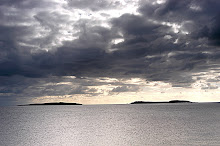Sunday, September 27, 2009
village people
I enjoyed reading Blackbourn’s “Populists and Patricians” this week. Throughout the class so far I became under the impression that the peasant class was just was just a conservative, dependent, and politically removed class in Germany during this time period. Blackbourn, however, seemed to shed light on some of the intricacies, and realities, of this peasant class. Their involvement in the small (slightly crazy sounding) political parties stunned me—it made me see that these rural village communities were aware of the changes taking place in the German states, especially with regards to the rise of cities. That these groups essentially facilitated the rise of mass politics because their own involvement forced other, larger groups to begin appealing to the peasants flies in the face of other notions which assumes that mass politics arose from the enlightened upper classes who realized the righteousness of extending political consideration to all. It wasn’t the upper and liberal classes aiding the supposedly progressive rise of mass politics, it was the lowly peasants themselves. Another thing that I found surprising was the lower class’ very un-conservative political support. This group, which I had been led to believe by other historians was an eternal stitch in the conservative garment, actually held radical political ideology. Now although many of the peasants might have voted for the more liberal organizations only because they were the only groups to address their needs directly, their failure to vote conservatively still marks a break with the notion that this class is under the under the influence of the conservative Junkers and their conservative Catholic priests. The revolution from the top/change from the top attitude that seems to have dominated the German mindset hitherto this point seems now to have failed, as the lower classes are now the ones ushering in their own revolutionary views—acceptance of mass politics, socialist agendas as well as anti-Semitism that will play a large role in Germany’s future.
Subscribe to:
Post Comments (Atom)

The radical-ness of the peasantry should not be so surprising given the German history we have already discussed. They have shown that when they are continuously affected by suffering in which they can identify its causes, such as not gaining help from the likes of the Junkers, they will act and then when they have accomplished what they sought, they receded back to their lives. What is so interesting about this time is that they had the ability to vote to show their discontent and create changes in their own lives.
ReplyDeleteYour post hits on one of the interesting aspects of peasant or rural history. In many ways, peasants do tend to be 'traditional' or 'conservative' in the sense of being slow to change or suspicious of outsiders but all too often that type of conservatism becomes associated with big "C" Conservatism, not always the same thing. Just because peasants might tend to loyal to the monarch or resistant to Social Democracy does not mean that they were incapable of recognizing and working for their own self-interest or that they were manipulated rather than being able to influence events. Understanding German history requires understanding how these relationships worked in fact, not just assumption.
ReplyDelete